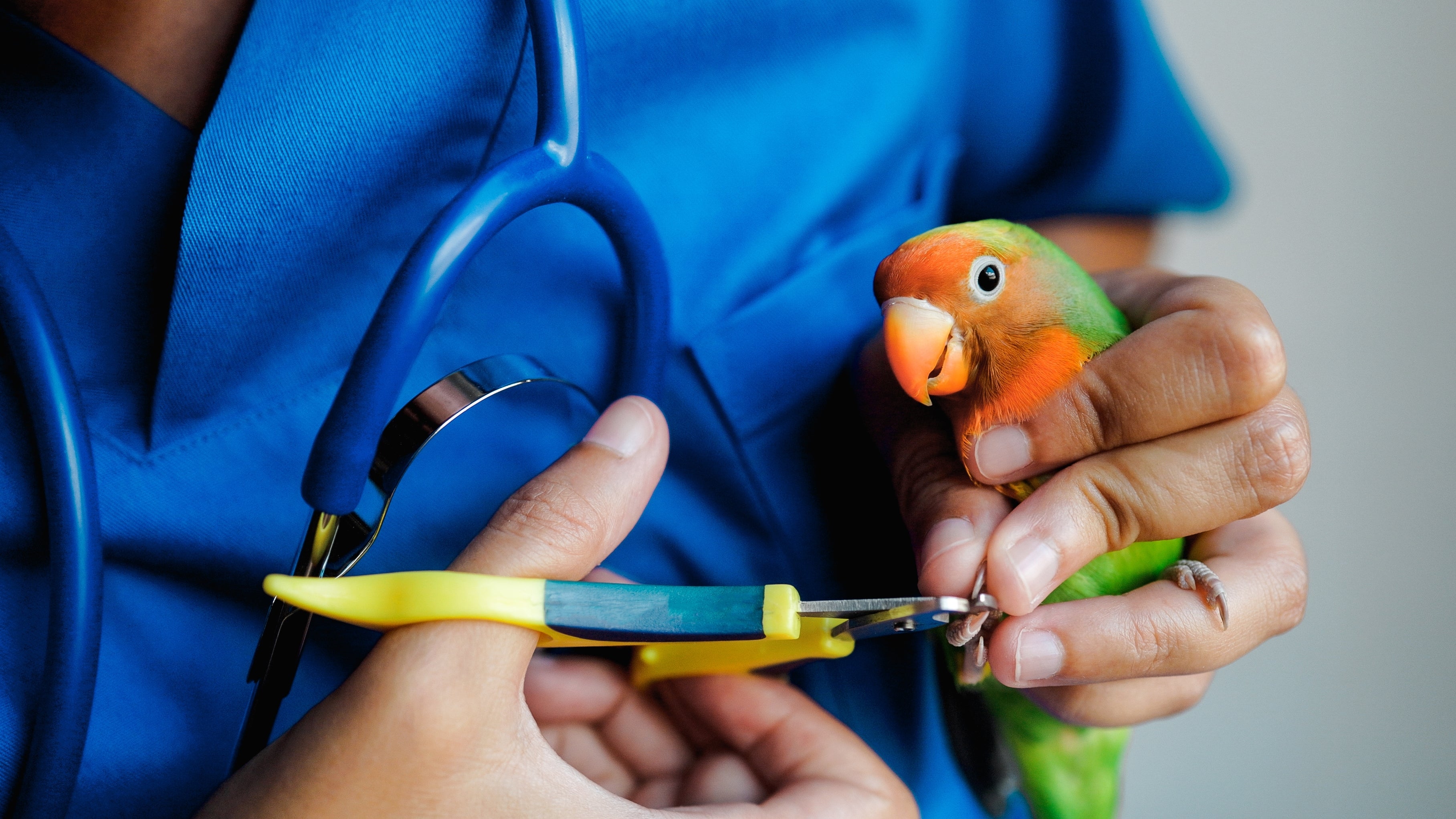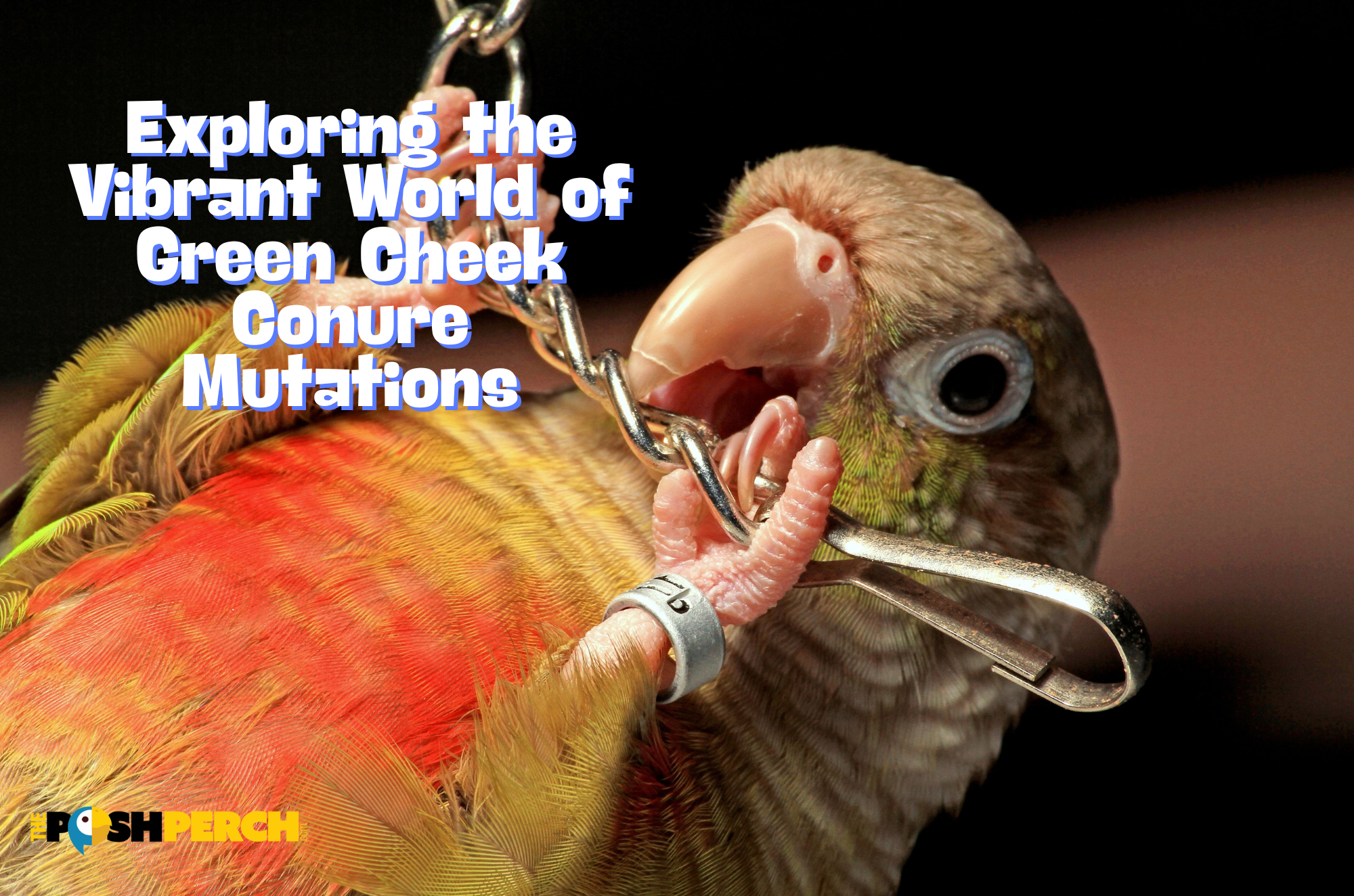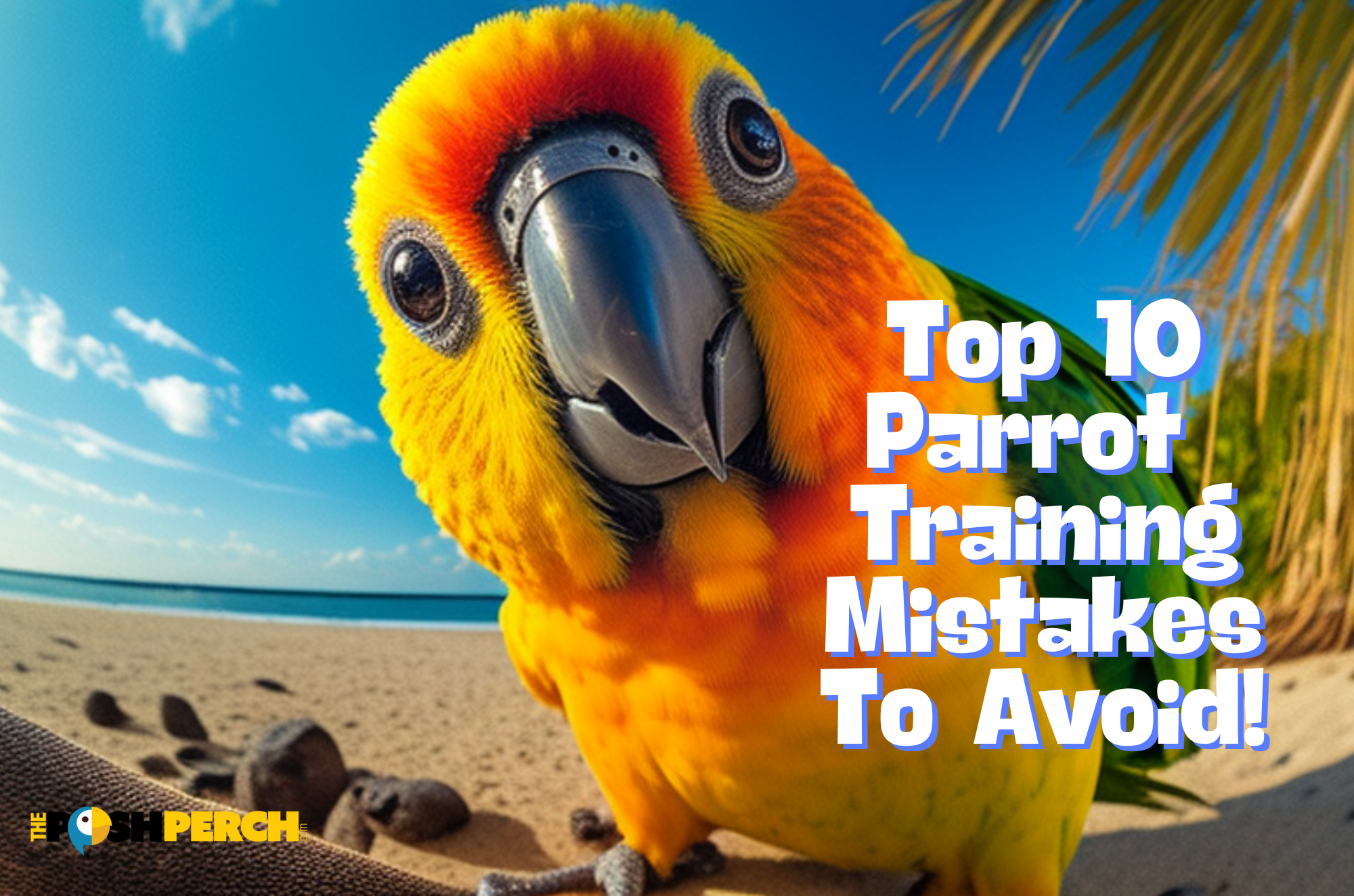
Is Your Pet Parrot Stressed, Depressed, or Anxious How To Tell If It Is And What To Do To Stop It.
9 min reading time

9 min reading time
Birds are fascinating companions, often bringing immense joy and color to our lives. However, just like humans, they experience a range of emotions and can suffer from stress, depression, and anxiety. Understanding your bird's behavior is crucial for their well-being. In this blog post, we will explore how to identify signs of emotional distress in birds, the causes behind these feelings, and practical tips on how to alleviate their stress. By becoming more attuned to your feathered friend, you can improve their quality of life and deepen your bond with them.
Birds communicate their feelings through their behavior and physical appearance. One of the most noticeable signs of stress is feather plucking. This compulsive behavior can lead to bald patches and might be a bird's way of coping with anxiety. It’s essential for bird owners to keep an eye on their pets and be proactive when they notice this behavior.
In addition to feather plucking, birds may also exhibit changes in their vocalizations. If your usually chatty parrot suddenly becomes quiet or starts producing unusual sounds, it could be signaling discomfort or distress. Alterations in normal vocal patterns often indicate that something is amiss in their environment or emotional state.
Furthermore, stressed birds might display a ruffled appearance. This can include fluffed-up feathers that make them look larger than usual. They may also perch in awkward positions, retreating to dark corners or hiding in their cage. Observing these changes is vital for early intervention.
Behavioral changes are another critical indicator of stress in birds. A bird that suddenly becomes aggressive or territorial may be feeling overwhelmed. You might notice them lunging at you or other pets, which is a clear sign they're struggling with their emotional state.
Conversely, some birds may react by withdrawing. If your once playful bird now appears lethargic or disinterested in interacting, it could indicate that they are feeling anxious or depressed. They might spend more time alone, avoiding social interactions or favorite activities.
It’s also essential to consider how your bird interacts with its environment. If they are constantly pacing, trying to escape their cage, or showing signs of excessive preening, these behaviors could also signal underlying stress. Understanding these signs is the first step toward promoting a healthier, happier bird.
Birds thrive in stable environments, and any disruption can lead to increased stress. For instance, changes in routine, such as being moved to a new location or sudden loud noises, can impact their emotional well-being. New pets, renovations, or even changes in household dynamics can cause anxiety in birds.
Additionally, confinement in a small cage or lack of stimulation can lead to boredom and depression. Birds are intelligent creatures that require mental and physical engagement to stay happy. When they lack opportunities for exploration and play, they may develop stress-related behaviors.
Seasonal changes can also affect birds. For example, shorter days during winter months may disrupt their natural rhythm, leading to increased stress levels. It's vital to monitor your bird's environment and minimize stressors to create a more comfortable living space.
Birds are social animals, often thriving when they have interaction with their owners or other birds. Isolation can lead to feelings of loneliness and depression. If a bird is kept alone without regular social interaction, it can experience significant psychological distress.
Overcrowding can be another issue for social birds. While they enjoy companionship, too many birds in one cage can lead to fights and competition for resources. This overcrowding may result in increased aggression or withdrawal, depending on the bird's personality.
Understanding the social needs of your specific bird species is essential. Some birds, like parrots, are highly social and require regular interaction, while others might prefer more independence. Tailoring your approach based on your bird's needs can help mitigate anxiety and promote happiness.
A well-designed environment is vital for a bird's mental health. Start by ensuring your bird's cage is spacious enough for them to move comfortably. Include perches at varying heights, toys to engage with, and platforms for climbing. The more enriching the environment, the less likely your bird will become bored or stressed.
Adding natural elements such as swings, ladders, and foraging toys can stimulate their minds. Rotate toys frequently to keep their interest piqued and encourage active engagement. This variety will provide not only amusement but also exercise, which is crucial for maintaining a healthy weight and reducing stress.
Furthermore, consider placing the cage in a calm area of your home. Birds can be sensitive to their surroundings, so minimizing exposure to loud noises or constant foot traffic can help create a peaceful living space. Soft lighting and a reliable day-night cycle can also promote relaxation.
Regular veterinary visits are vital for identifying potential health issues that may contribute to a bird's stress levels. Ensure your bird is up-to-date on vaccinations and check for any signs of illness. A healthy bird is often a happier bird, so prioritizing their health can lead to improved emotional well-being.
Proper nutrition also plays a significant role in your bird's mental health. Offer a balanced diet with a variety of seeds, pellets, fresh fruits, and vegetables. Foods rich in Omega-3 fatty acids, like flaxseed and chia seeds, can promote brain health and reduce anxiety.
Additionally, providing safe treats can enhance your bond and encourage positive behaviors. Experiment with different fruits and vegetables to determine your bird's favorites. Remember to introduce new foods gradually, allowing them to adjust to changes in their diet.
Linda, a proud owner of a lively parrot named Kiwi, noticed her feathered friend exhibiting signs of stress after moving to a new apartment. Kiwi became more aggressive, biting at anyone who approached. Linda identified that the loud traffic noise was overwhelming for Kiwi and decided to move his cage to a quieter room away from the sound. Gradually, Kiwi’s aggression diminished as he adapted to his new environment, illustrating the importance of a peaceful setting.
Tim adopted a cockatiel named Charlie, who had previously lived in isolation. Initially, Charlie exhibited signs of depression, sitting quietly in the corner of his cage. Recognizing the need for companionship, Tim decided to adopt a second cockatiel, named Bella. The two quickly bonded, and Charlie's demeanor changed dramatically—he became more vocal and interactive, showcasing how socialization can significantly impact a bird's happiness.
Sarah owned a budgie called Sunny, who began plucking his feathers shortly after she switched to an all-seed diet. Concerned about Sunny's behavior, she consulted her vet, who recommended a balanced diet rich in pellets, fruits, and vegetables. After implementing these dietary changes, Sunny's feather plucking decreased, demonstrating the strong connection between nutrition and behavioral issues.
Understanding how to identify and address stress, depression, and anxiety in birds is crucial for their well-being. By recognizing the signs and symptoms and understanding the various causes, bird owners can take proactive steps to promote a healthier environment for their pets. Creating a comfortable living space, prioritizing social interaction, and ensuring proper nutrition and veterinary care can all contribute to your feathered friend's happiness.
Bird owners must remain vigilant and monitor their birds closely for any signs of distress. Sharing experiences and knowledge with fellow bird enthusiasts can create a supportive community, leading to better lives for our avian companions. By fostering this awareness, we can ensure that our feathered friends remain happy and healthy for years to come.


